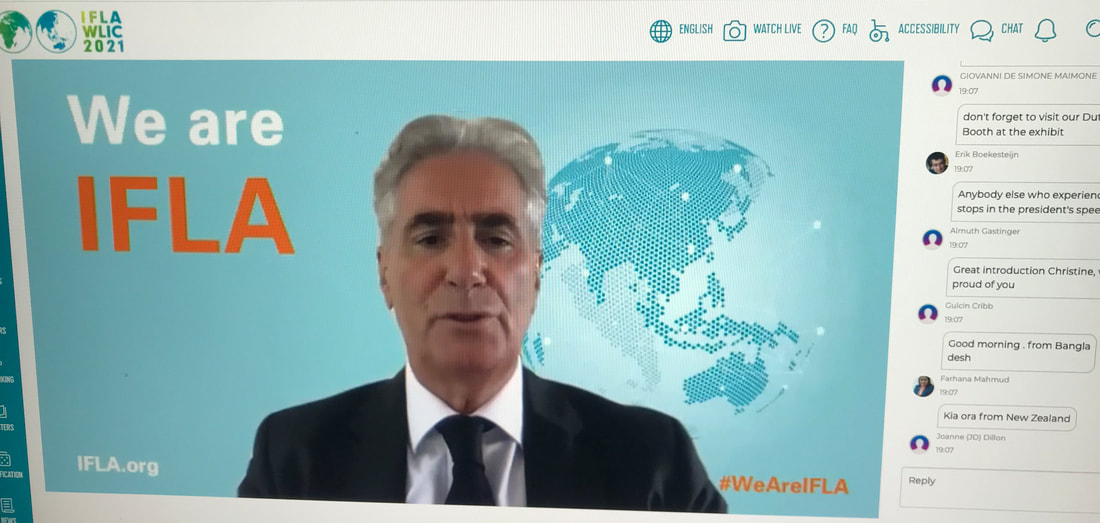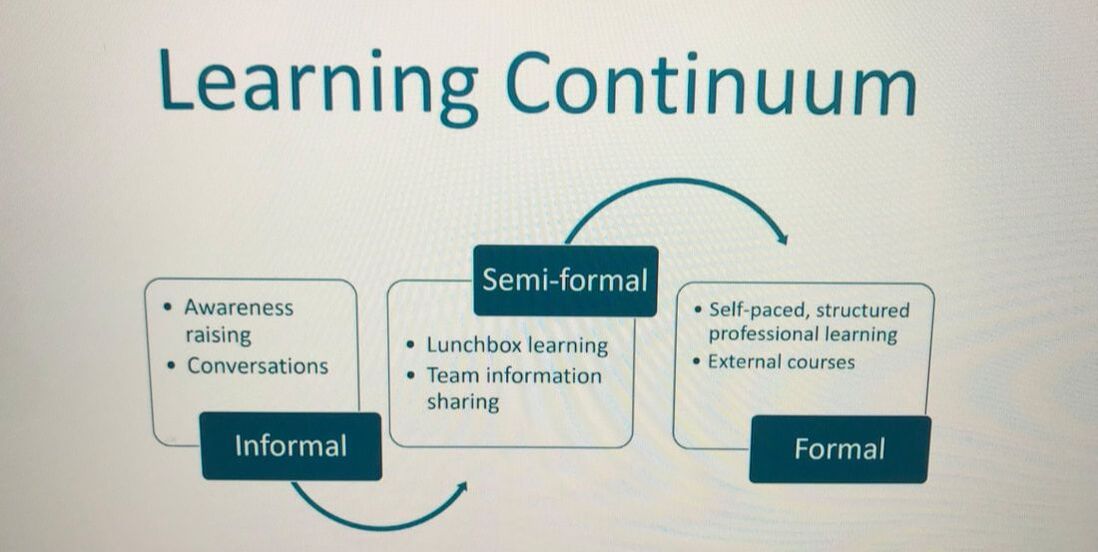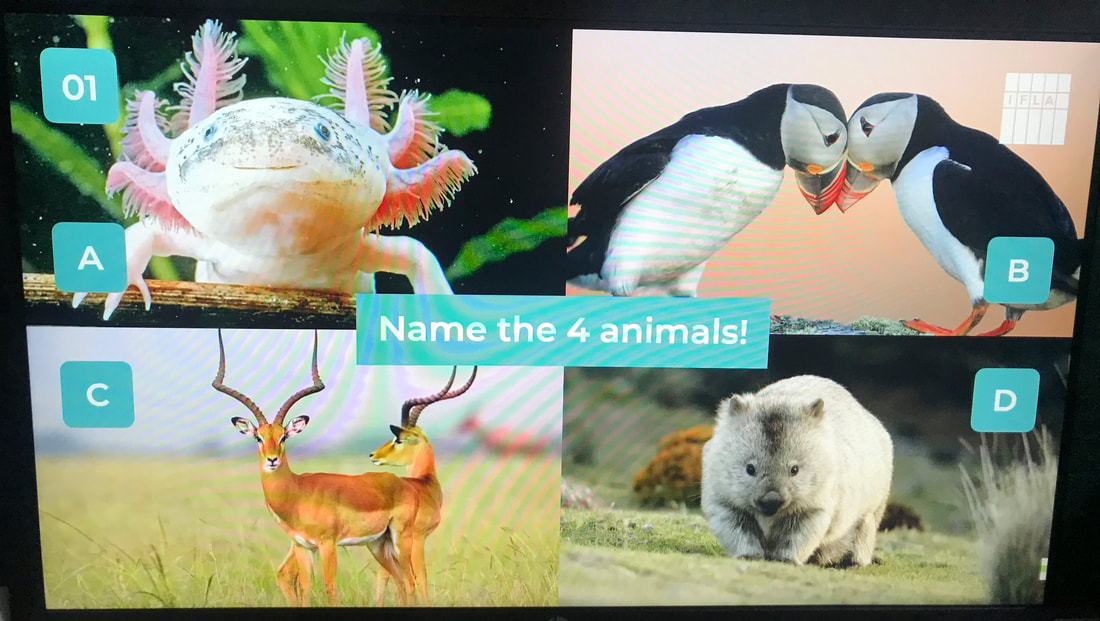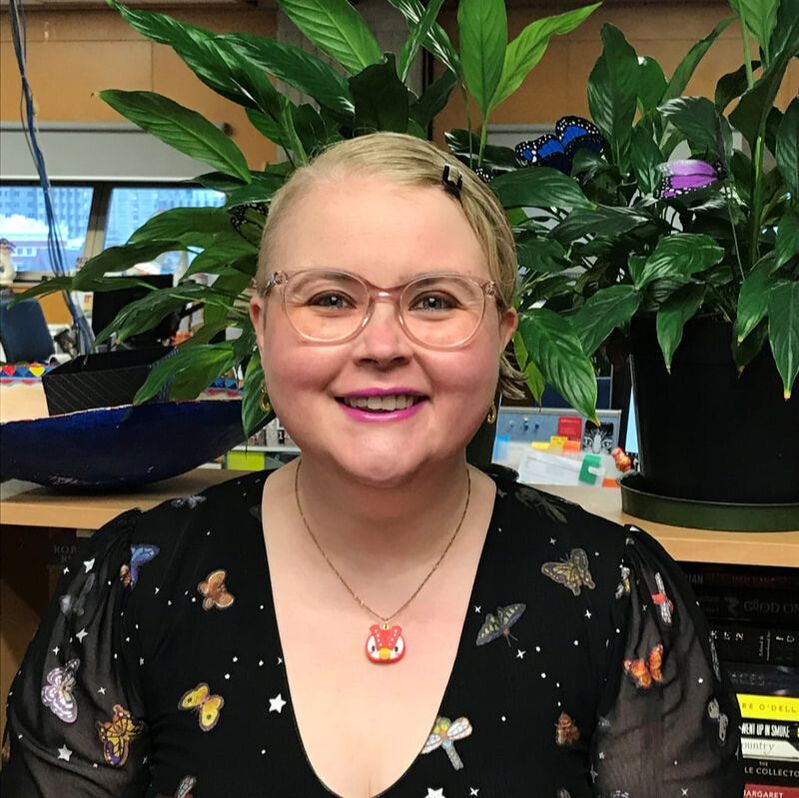Over three days – and three different time zones – the conference included over 90 hours of content, a poster exhibition, sponsor ‘stalls’, and opportunities to network with colleagues from all over the world… including a table quiz I participated in at 3.30am.
Here I’d like to share my top 10 takeaways from this awesome event.
I wasn’t sure how much I’d get from a session about strategic foresight, but it turned out to be very interesting. Mostly because the speaker was clever, and knew his audience, turning what could have been a jargon-laced bore into an insightful storytelling metaphor. What it boils down to is the future shapes our attempts to steer our actions – both individual and as institutions. To craft a relevant and proactive service in the present, we need to spin stories of possible futures to challenge our assumptions, facilitate patron participation, and assist policymakers with their decisions.
The OCLC session featured several different speakers, talking about different areas of their business and their different offerings. But one of the things that came up time and again was the importance of developing a holistic online experience, while also keeping the sense of physical place that is so important to many of our patrons. This was largely discussed in terms of the pandemic and its long-lasting effected on library services. One of the key points was how to recreate in-person relationships when offering services online. I was glad this was one of the earliest sessions I attended, because it then allowed me to recognise excellent examples of this in practice during other presentations.
A Japanese librarian mentioned that one of their criteria is 10 years of service. This is very different from the LIANZA professional registration criteria, and it was interesting to see what different cultures and countries place importance on for their staff development.
For this session, libraries across the Asia Pacific region presented projects relating to the UN’s SDGs. A Malaysian library presented their work, which focuses on goal 4: Quality education. This includes an annual reading programme across the country called ‘Let’s read together’, the Reading Seeds early reading programmes, information sharing on local content preservation, and digital community centres that includes an online learning platform with modules on devices, eCommerce, evaluating sources, and more. The overall keynote for the session also challenged libraries to consider how we make these SDGs more known to our communities and embedded in the work we do.
Even when not explicitly stated, many sessions centred around the importance of agility when dealing with all the challenging facing librarians. As a result, it was interesting to learn that IFLA is currently working on new guidelines (coming in 2022) for continuing professional development. Considering everything that’s been happening, they want the guidelines to change with the times. Where previously focused on in-person conferences, seminars, and workshops, more thought will be given to how development opportunities can be delivered digitally. The aim is to give librarians more control over their professional development and career, while also helping providers like libraries, professional associations, and third-party companies keep up with changes in technology and core competencies.
From diminishing budgets and staff cuts to competition from technologies and other forms of entertainment, the same kinds of barriers came up from libraries across the world. In a way, it was heartening to see that we’re all in the same boat on many key issues.
This I probably could have extrapolated from the popularity of the Otago Daily Times quiz in my own library every tea break! But it was still a little overwhelming (in a good way!) to see how many librarians from around the world were keen to take part in the quiz put on by IFLA as a social event at the end of our first day of conference. In the end, I got 13 out of 20, which I thought was okay for 3.30am. I add this just to highlight that even though we weren’t meeting in person, IFLA made the effort to acknowledge the important of having more social, fun elements to go alongside all the learning.
I’ve ‘borrowed’ this header almost directly from one of the session names, as it really appealed to me. This was a bit of a round robin session, with a number of speakers sharing creative programmes supported or developed by their libraries. My favourite was the first-time authors appreciation programme, which has been running for 11 years at NALIS in Trinidad and Tobago. This year they added an awesome online element – ‘path to publication’ videos from some of their first-time authors.
Throughout the event, the organisers lauded the inclusivity of the online format – and it’s true that many of us who attended would never have had the opportunity to attend in person. At the same time, there was an overwhelming amount of talk about looking forward to seeing each other in person at next year’s WLIC in Dublin. Personally, I hope they offer some components of the next conference online, like LIANZA is doing this year. Given the issues we continue to face going forward – the pandemic, climate change – this would allow IFLA to ensure the diversity visible at this year’s event continues to be seen and heard as we work together to craft the best possible future.
Writing up my notes and thinking about this piece while sitting in Level 4 lockdown really brough home the fact that libraries matter to patrons, staff, and communities. Seeing the efforts libraries around the world have gone to over the past couple of years to continue to be places of information, entertainment, distraction, and lifelong learning was probably the most inspiring part of the IFLA WLIC 2021.
| Rebecca Keenan; is a cataloguer at Dunedin Public Libraries, an active member of the Kōtui Cataloguing Working Group, and a registered member of LIANZA. She started in libraries as a shelver, has also worked in collection services, and spends an occasional shift on the reference desk. She’s currently reading How to Mars by David Ebenbach, her pet rabbit’s name is Buddy, and her hands are covered in ink from learning brush lettering as a leftie. |






 RSS Feed
RSS Feed